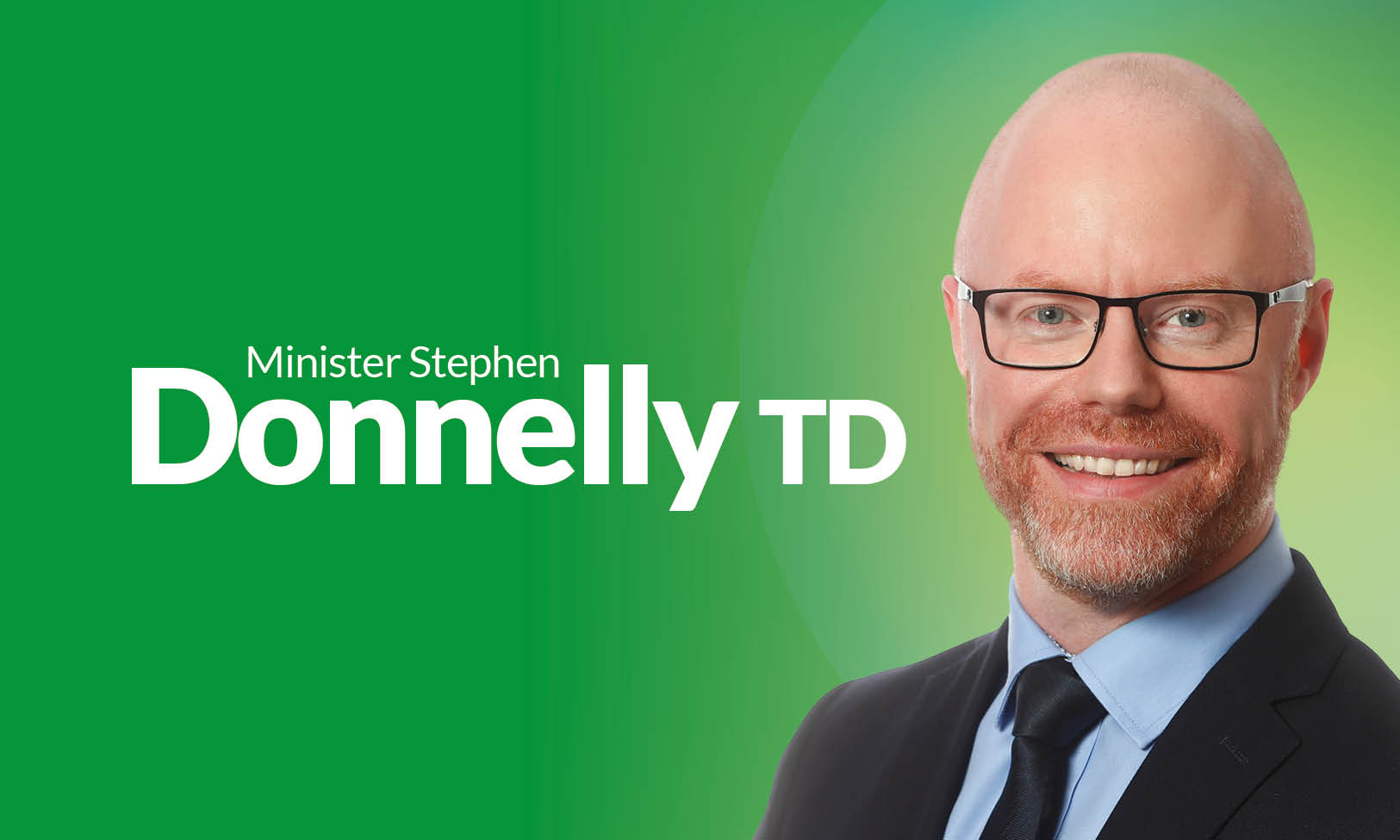Minister for Health publishes HSE National Service Plan for 2022
Published on: 03 March 2022
The Minister for Health Stephen Donnelly has approved the 2022 National Service Plan for the HSE which aims to reduce waiting lists, build hospital and other service capacity and continue to support the progress of important Sláintecare reforms.
The National Service Plan outlines the health and social care services that will be provided to the people of Ireland in 2022 within the allocated budget of €20.7bn.
The Minister for Health Stephen Donnelly said: “This is the largest financial allocation ever received by the health and social care services and it comes at a time when we are continuing to deliver reforms and improvements based on the recommendations of the Sláintecare report towards the delivery of Universal Healthcare.
“This National Service Plan for 2022 will improve outcomes for people who need to engage with our public health service, continue to see capacity increased, build on the reforms and improve timely access.
“The Plan supports health objectives set out in the Programme for Government, bringing us closer to Universal Healthcare, sees a huge focus on the promotion of Women’s Health, and in the post-COVID-19 environment we also focus on supporting positive Mental Health and Wellbeing amongst others.”
Mr Paul Reid, CEO of the HSE said: “There is now renewed hope that we are moving towards a more normal environment in which we can tackle waiting lists, change and improve how we do many things and build on innovations made during the pandemic. During 2022, we will work to identify practical means to deal with the huge task in front of us to provide badly needed services to people who have been waiting for a long time.
“We remain deeply grateful for the public’s support and for the hard work and dedication of our HSE staff and look forward to continuing collaborative working in the coming year and using public funds to further improve the services we provide to the public.”
On the HSE’s priorities for 2022, Ciarán Devane, HSE Chairman said: “Our key focus continues to be the provision of safe health and social care services and, simultaneously, the progression of fundamental reforms across our entire service delivery model in areas such as the delivery of Sláintecare, addressing waiting lists and waiting list times, women’s health and mental health services, along with national strategies.
“Good governance, including rigorous and meaningful risk oversight and the monitoring of performance against clearly defined targets is a key element in assuring that services can be delivered in a way that maximises both quality and value.”
The NSP envisages that bed numbers within acute settings will significantly increase, including 1,146 additional acute beds by the end of 2022 (849 of which will be open by end-2021) and 19 additional critical care beds, to bring the total number of adult critical care beds to 340 by the end of 2022.
The funding for the Enhanced Community Care Programme will see completion of the roll-out of 96 Community Healthcare Networks (CHNs) and 30 community specialist teams for older persons, as well as the establishment of 30 community specialist teams for people living with chronic disease, reducing our dependence on a hospital-centric model of care.
Crisis resolution services in mental health will continue to develop, with the addition of three teams and cafes in place by year-end, providing 900 additional interventions as alternatives to acute inpatient care and ED presentations. The CAMHS telehealth hubs initiative will also progress, developing two further hubs in 2022 with an anticipated 200 new service users seen. And the new National Forensic Mental Health Service will be opened in Portane with an initial 110 beds, increasing to 130 during 2022. Increased resourcing of specialist eating disorder teams will support an additional 660 new cases per year and additional early intervention in psychosis teams will support an additional 335 service users.
120,000 additional hours of personal assistant supports, and 30,000 additional hours of home support will be delivered in disability services. This will expand and enhance supports for people to live self-directed lives in their own communities. We will also establish three additional specialist centre-based services to provide 4,032 respite nights to 90 children and will be transitioning 63 people (with disabilities) under the age of 65 from nursing homes and to the community.


